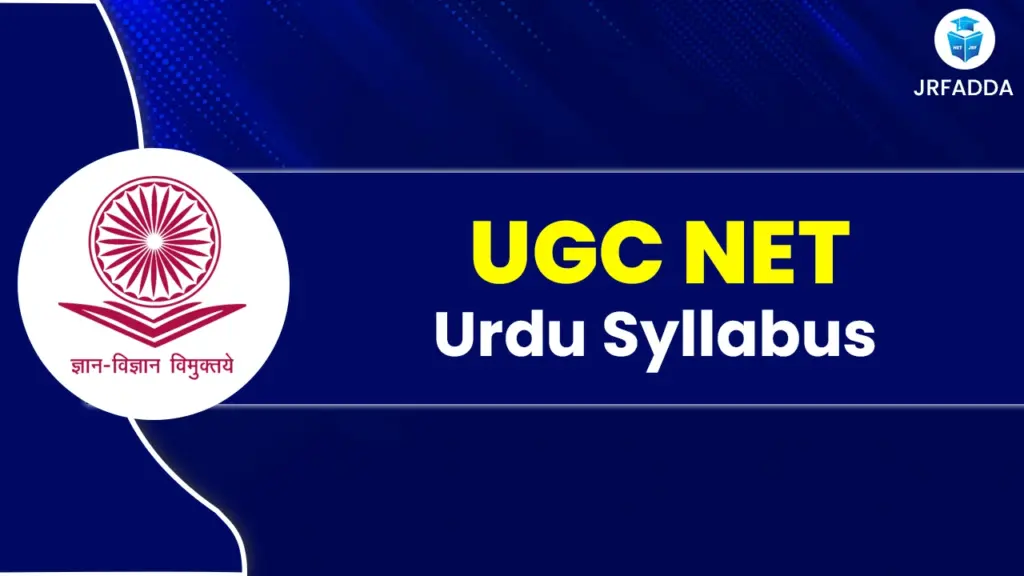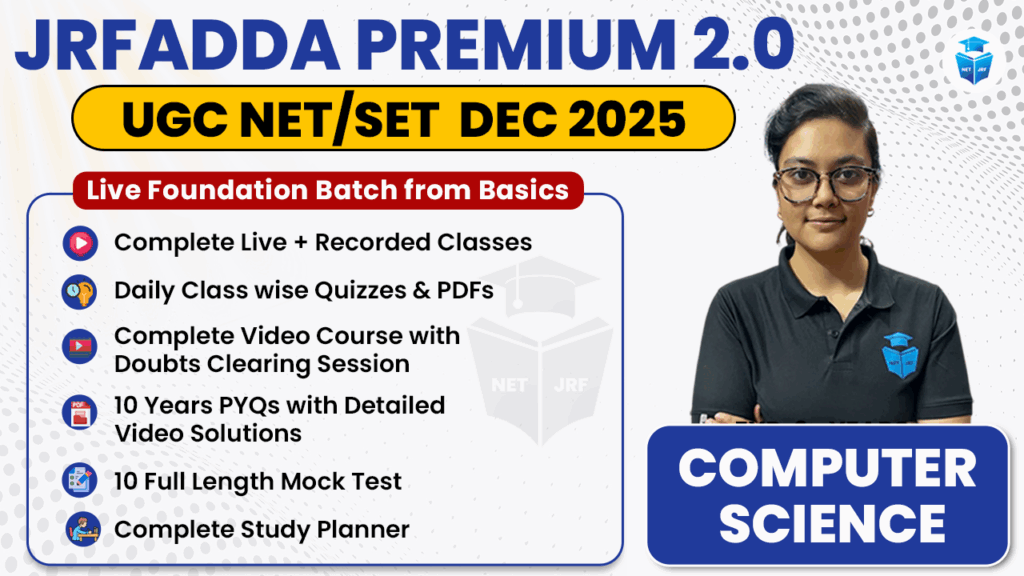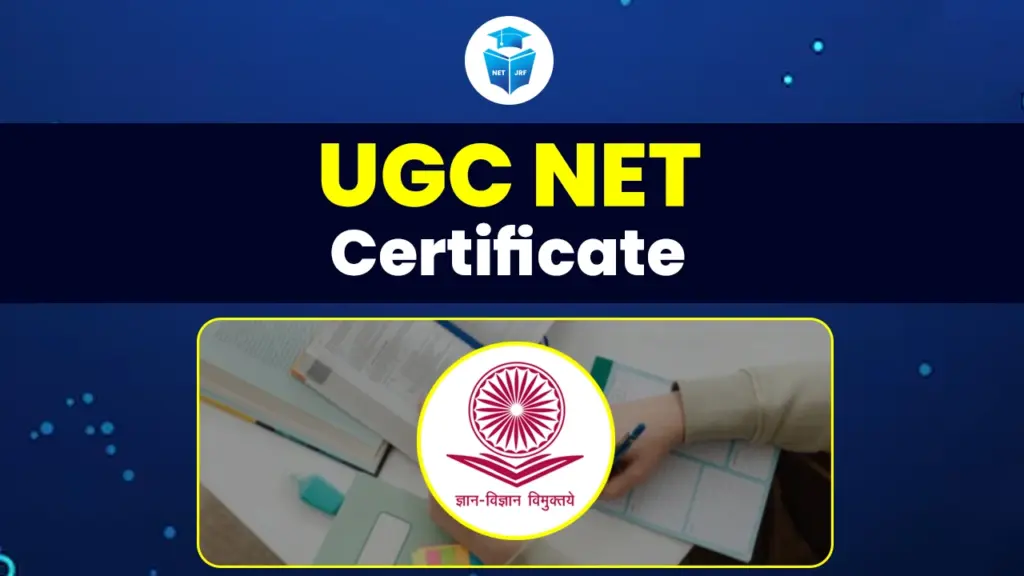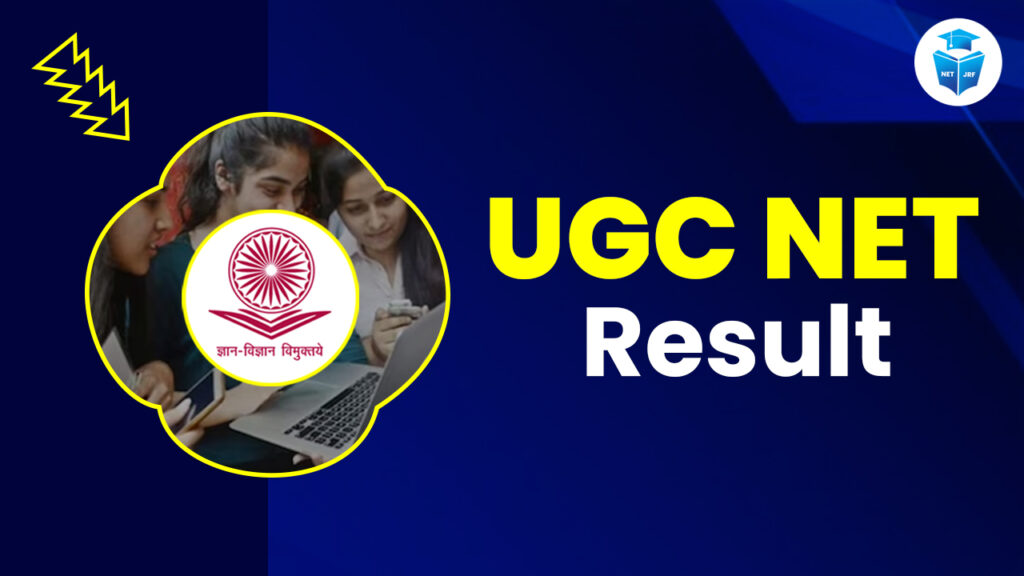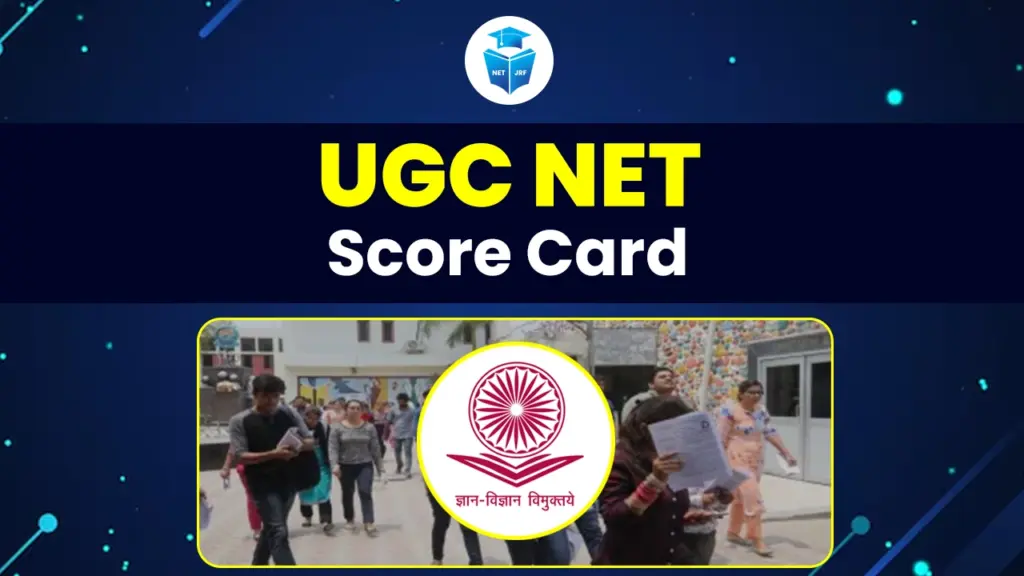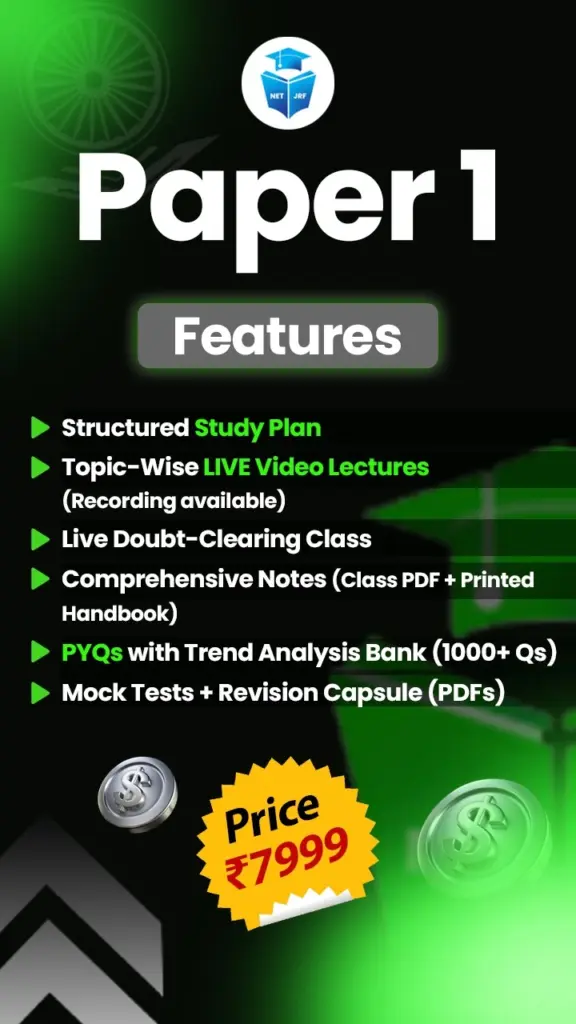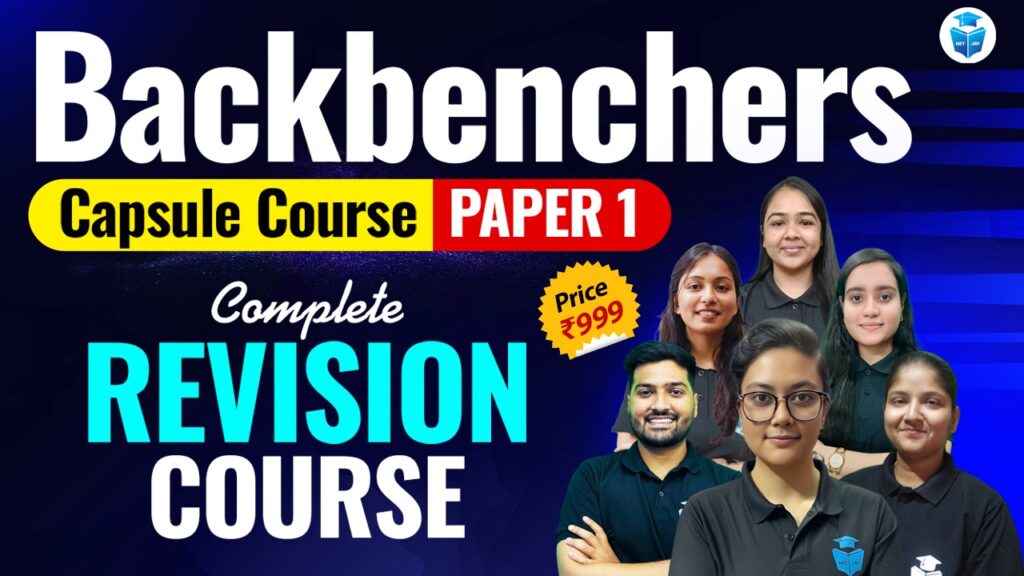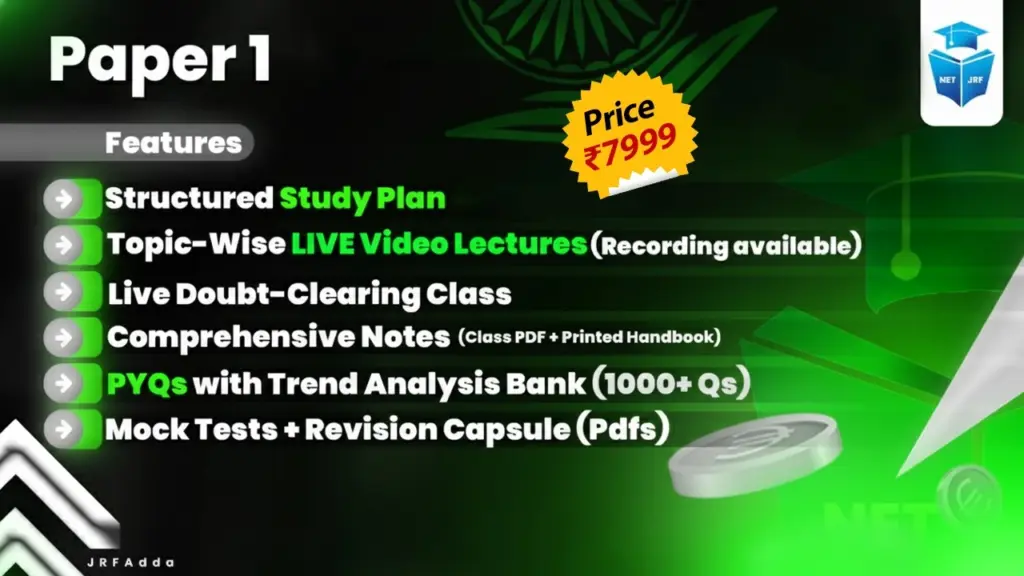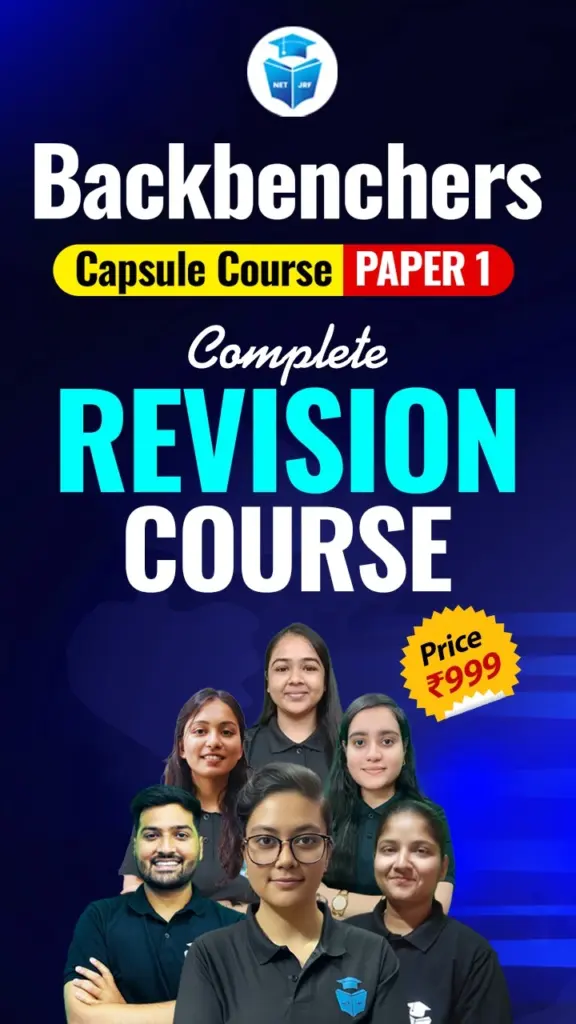UGC NET Urdu Syllabus 2026 has been officially released by the National Testing Agency (NTA). This comprehensive syllabus includes topics from Urdu literature, grammar, linguistics, poetry, and literary criticism. Candidates aiming for the Junior Research Fellowship (JRF) or Assistant Professor positions should thoroughly study this updated syllabus. The subject code for Urdu is 28, and the syllabus is divided into 10 in-depth units covering classical to contemporary Urdu studies. The UGC NET December 2025 session’s exam was scheduled on 2nd January 2026 in the shift 1 from 9:00 AM to 12:00 PM, and has now concluded.
Also Read: UGC NET Exam Date
UGC NET Urdu Syllabus 2025 Overview
The UGC NET 2025 exam is a national-level exam conducted by the NTA twice a year in a computer-based format. It evaluates candidates’ eligibility for research and teaching roles in Indian higher education institutions.
| Feature | Details |
| Exam Name | UGC NET 2025 |
| Conducting Authority | National Testing Agency (NTA) |
| Purpose | Eligibility for Assistant Professor & JRF |
| Exam Frequency | Twice a year |
| Exam Mode | Computer-Based Test (CBT) |
| Medium of Exam | Urdu |
| Total Duration | 3 Hours (180 Minutes) |
| Papers | Paper I (General) & Paper II (Subject-specific) |
| Subject Code for Urdu | 28 |
| UGC NET Urdu Exam Date 2025 | 2 January 2026, Shift 1 |
| Official Website | ugcnet.nta.nic.in |
UGC NET Urdu Syllabus 2026 PDF Download
To prepare efficiently for the exam, candidates are advised to download the official UGC NET Urdu Syllabus 2026 PDF. It provides a detailed unit-wise framework of linguistic, literary, and critical themes in Urdu studies. Download the UGC NET Urdu Syllabus 2026 PDF from the link provided below:
Download UGC NET Urdu Syllabus 2026 PDF
UGC NET Syllabus 2025 Unit Wise
Paper 1 of the UGC NET exam is common to all subjects, including Urdu. It is designed to test the teaching and research aptitude of candidates. This paper evaluates comprehension, reasoning ability, general awareness, and higher education knowledge. It comprises 50 objective-type questions, each carrying 2 marks.
| Unit No. | Topic | Detailed Description |
| Unit 1 | Teaching Aptitude | – Nature and objectives of teaching
– Characteristics of good teaching – Learner characteristics (adult learners, diverse backgrounds) – Teaching methods: learner-centered vs. teacher-centered – Teaching aids and evaluation systems – Classroom interaction and levels of teaching (Memory, Understanding, Reflective) |
| Unit 2 | Research Aptitude | – Meaning and characteristics of research
– Types: Fundamental, Applied, Action, and Qualitative research – Research ethics and plagiarism – Steps in research: Problem formulation, Hypothesis, Sampling – Research methods and tools – Paper/dissertation/thesis writing standards |
| Unit 3 | Comprehension | – Reading unseen passages
– Answering based on logical interpretation – Assessing ability to understand and analyze written information |
| Unit 4 | Communication | – Nature and types: Verbal and non-verbal, formal and informal
– Barriers to effective communication – Classroom communication and feedback mechanisms – Elements of communication process |
| Unit 5 | Mathematical Reasoning and Aptitude | – Number series, letter series, codes
– Percentages, ratios, averages, interest – Profit-loss, time & work – Interpretation and comparison of numerical data – Quantitative aptitude questions |
| Unit 6 | Logical Reasoning | – Understanding arguments and assumptions
– Analogies, syllogism, Venn diagrams – Indian and Western logic (e.g., Anumana, Nyaya logic) – Logical connectives and deductive reasoning |
| Unit 7 | Data Interpretation | – Data tables, bar graphs, pie charts, line graphs
– Interpretation and analysis of data – Basic statistics: Mean, median, mode, standard deviation |
| Unit 8 | Information and Communication Technology (ICT) | – Basics of computers and digital devices
– Internet, email, web browsers, search engines – ICT in education: e-learning platforms, MOOCs – Digital initiatives of the Government of India (e.g., SWAYAM, DIKSHA) |
| Unit 9 | People, Development, and Environment | – Sustainable development, environmental issues
– Human and environmental interaction – Natural resources, pollution, biodiversity – Development and environment policies – Disaster management and population dynamics |
| Unit 10 | Higher Education System: Governance, Polity, and Administration | – Evolution of higher education in India
– Policies, commissions, and committees (e.g., NEP 2020) – Value education and ethics – Structure of higher education system: UGC, AICTE, NAAC, etc. – Governance and administration in Indian universities |
Also Read: UGC NET Previous Question Papers PDF
Download UGC NET Paper I Syllabus 2026 PDF
| UGC NET Paper I Syllabus 2026 | |
| English | Hindi |
Also Read: UGC NET Syllabus 2026 PDF Download
UGC NET Urdu 2026 Syllabus Unit Wise
UGC NET Urdu 2026 syllabus focuses specifically on Urdu literature and linguistics. It consists of 10 core units that span poetry, prose, literary movements, linguistic evolution, and theoretical frameworks.
Unit I: Educational Philosophy and Pedagogy
- Islamic education and culture
- Contemporary educational theories
- Historical overview of educational philosophies
- Various principles and theories of education
- Teacher-student relationships
- Organization and management techniques in pedagogy
- Principles of social justice in education
- Solutions to educational challenges
- Ethical principles for teachers and students
- Teacher development and analytical comparison of educational performance
Unit II: History and Literature
- History of Urdu language and Islamic literature
- Notable authors and literary figures
- Literary periods and regions
- Various principles of Urdu poetry and prose
- Analytical comparison of different literary genres in Urdu literature
- Study of literary essays
- Contemporary literary themes and publishing movements
Unit III: Modernity and Contemporary Topics
- Islamic principles and subjects
- Contemporary humanity and society
- Modern political and economic issues
- Study of historical and intellectual figures
- Relationship between classical/contemporary thought and Urdu literature
- Thematic analysis of contemporary Urdu poetry and prose
Unit IV: Educational Process of the Urdu Language
- Language sciences: principles, history, and analysis
- Linguistic system: grammar and morphology
- Study of various linguistic essays
- Language difficulties and their solutions
Unit V: Pedagogical Training Process
- Principles and techniques for designing educational plans
- Various instructional strategies for effective teaching
- Development and delivery of educational content
- Student development and academic counseling
- Principles of educational justice and equality
Unit VI: Research Work in Urdu Language
- Various stages of research
- Selection and determination of research topics
- Research methodology: data collection, selection, and analysis
- Rules and techniques for writing research reports
Unit VII: Literary Principles
- Study of literary theories
- Literary imagery and genres
- Various styles of expression in Urdu literature
- Literary essence and trends
Unit VIII: Literary History
- Phases of literary history
- History and analysis of Urdu prose writing
- History and analysis of Urdu poetry
Unit IX: Contemporary Urdu Literature
- Study of various areas of contemporary Urdu literature
- Introduction and analysis of modern writers and poets
Unit X: History of Urdu Language and Humanities
- Historical background and influences on the Urdu language
- Development of the Urdu language and its relationship with human history.
یو جی سی نیٹ اردو نصاب 2025 کی تفصیل
جزو اول: تعلیمی نظریہ اور تدریس
- اسلامی تعلیم اور ثقافت
- معاصر تعلیمی نظریات
- تعلیمی نظریات کا تاریخی جائزہ
- تعلیم کے مختلف اصول اور نظریات
- معلم اور طالب علم کے تعلقات
- تدریسی عمل کی تنظیم اور انتظامی تراکیب
- تعلیم میں معاشرتی انصاف کے اصول
- تعلیمی چیلنجز کا حل
- اساتذہ اور طلباء کے اخلاقی اصول
- معلم کی ترقی اور تعلیمی کارکردگی کا تجزیاتی موازنہ
جزو دوم: تاریخ اور ادب
- اردو زبان کی تاریخ اور اسلامی ادب
- اہم مصنفین اور ادبی شخصیات
- ادبی ادوار اور جغرافیائی مراکز
- اردو نظم و نثر کے مختلف اصول
- اردو ادب کی مختلف اصناف کا تجزیاتی موازنہ
- ادبی مقالات کا مطالعہ
- معاصر ادبی موضوعات اور اشاعتی تحریکیں
جزو سوم: معاصریت اور جدید موضوعات
- اسلامی اصول اور موضوعات
- معاصر انسانیت اور معاشرہ
- جدید سیاسی اور معاشی موضوعات
- تاریخی اور فکری شخصیات کا مطالعہ
- کلاسیکی و معاصر فکری رجحانات اور اردو ادب سے ان کا تعلق
- معاصر اردو نظم و نثر کا موضوعاتی تجزیہ
جزو چہارم: اردو زبان کا تعلیمی عمل
- لسانی علوم: اصول، تاریخ اور تجزیہ
- لسانی نظام: صرف و نحو
- مختلف لسانی مقالات کا مطالعہ
- زبان سے متعلق مشکلات اور ان کا حل
جزو پنجم: تدریسی تربیتی عمل
- تعلیمی منصوبہ بندی کے اصول و تراکیب
- موثر تدریس کے مختلف طریقہ کار
- تعلیمی مواد کی تیاری اور تدریس
- طلباء کی ترقی اور تعلیمی رہنمائی
- تعلیمی انصاف اور برابری کے اصول
جزو ششم: اردو زبان میں تحقیقی کام
- تحقیق کے مختلف مراحل
- تحقیقی موضوعات کا انتخاب اور تعین
- تحقیقی طریقۂ کار: مواد کا انتخاب، جمع اور تجزیہ
- تحقیقی رپورٹ لکھنے کے اصول اور طریقے
جزو ہفتم: ادبی اصول
- ادبی نظریات کا مطالعہ
- ادبی تخیل اور اصناف
- اردو ادب میں اظہار کے مختلف انداز
- ادبی جوہر اور رجحانات
جزو ہشتم: ادبی تاریخ
- ادبی تاریخ کے مختلف مراحل
- اردو نثر نگاری کی تاریخ اور تجزیہ
- اردو شاعری کی تاریخ اور تجزیہ
جزو نہم: معاصر اردو ادب
- معاصر اردو ادب کے مختلف شعبوں کا مطالعہ
- معاصر ادیبوں اور شاعروں کا تعارف اور تجزیہ
جزو دہم: اردو زبان کی تاریخ اور انسانیت
- اردو زبان کا تاریخی پس منظر اور اثرات
- اردو زبان کی ترقی اور انسانی تاریخ سے اس کا تعلق
UGC NET Urdu Exam Pattern 2025
The UGC NET exam is conducted in a single session consisting of two papers.
| Paper | No. of Questions | Marks | Type of Questions | Duration |
| Paper 1 | 50 | 100 | General Aptitude (MCQs) | 3 Hours |
| Paper 2 | 100 | 200 | Urdu Subject-specific (MCQs) | 3 Hours |
Also Read: UGC NET Exam Pattern 2025
Tips to Crack UGC NET Urdu Exam 2026
- Start Early: Begin your preparation during postgraduation.
- Follow University Curriculum: Refer to MA Urdu syllabi from reputed universities.
- Smart Study Plan: Allocate time for revision, text analysis, and MCQ solving.
- Previous Year Papers: Analyze question trends and important themes.
- Mock Tests: Practice in a time-bound setup to simulate the real exam.
- Textual Reading: Read primary texts thoroughly — not just summaries.
- Improve Grammar & Style: Focus on idiomatic expressions, grammar rules, and linguistic theory.
Conclusion
The UGC NET Urdu Syllabus 2026 provides a comprehensive roadmap for aspirants looking to qualify for Assistant Professor and JRF roles. With its rich focus on Urdu literature, linguistics, grammar, and criticism, this syllabus allows candidates to explore both classical heritage and contemporary developments. Download the official syllabus PDF, strategize your preparation, and enhance your performance with consistent practice.
UGC NET Urdu Syllabus 2025 FAQs
What is the subject code for UGC NET Urdu?
The subject code for UGC NET Urdu is 28. Candidates must select this code while filling out the exam application form.
How many units are there in the UGC NET Urdu Syllabus 2025?
There are 10 units in Paper 2 of the UGC NET Urdu syllabus, covering Urdu literature, criticism, grammar, linguistics, and translation studies.
Is there any change in the UGC NET Urdu Syllabus for 2025?
As of now, the syllabus remains unchanged from the previous year. However, candidates are advised to check the official NTA website regularly for updates.
In which language is the UGC NET Urdu exam conducted?
The UGC NET Urdu Paper is conducted in Urdu language only, while Paper 1 (General Paper) is available in English and Hindi.
Where can I download the UGC NET Urdu Syllabus 2025 PDF?
You can download the official syllabus from the NTA UGC NET website: ugcnet.nta.nic.in or from trusted academic portals.

